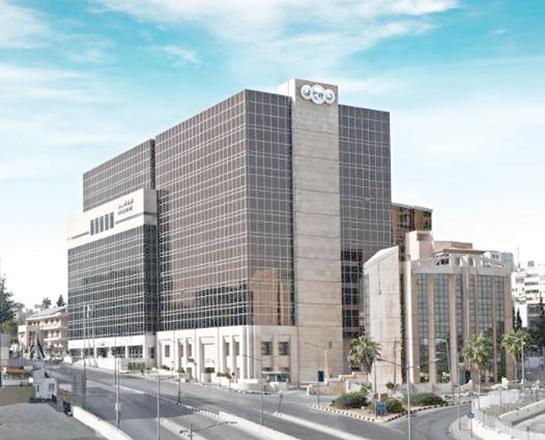- Local News
- Thu-2020-05-14 | 03:01 pm

In a statement made available to The Jordan Times on Wednesday, the group said that total loans amounted to $26.2 billion as of March 31, 2020 compared with $25.8 billion for the same period in the previous year, with a growth rate of 2 per cent, while customer deposits grew by 5 per cent to reach $35.2 billion, compared with $33.7 billion for the same period in the previous year.
The group "maintained its strong capital base” with equity of $9.2 billion and a capital adequacy ratio of 16.5 per cent, the statement said.
Chairman of the Board of Directors Sabih Masri remarked in the statement that the Arab Bank’s performance "confirms the success of the diversified business model of the group regionally and globally”.
The next phase will be "challenging for the global and regional economies and will witness a slowdown in growth and difficulties for various sectors as a result of the outbreak of the coronavirus pandemic”, he said, adding, however, that he has "great confidence” in the bank’s ability to deal with the challenges that lie ahead.
He noted that the bank has in previous years "demonstrated its effectiveness in operating in challenging economic environments”.
According to Chief Executive Officer Nemeh Sabbagh, the group’s net operating income dropped by only 2 per cent, but the bank opted to build more provisions during the first quarter of 2020 as a precautionary measure against the financial impact of COVID-19, which resulted in the decrease in the reported net income after tax.
Sabbagh added that Arab Bank Group "enjoys high liquidity and strong and robust capitalisation”. The group’s loan-to-deposit ratio stood at 74.4 per cent while the capital adequacy ratio calculated in accordance with Basel III regulations is at 16.5 per cent and credit provisions held against non-performing loans continue to exceed 100 per cent, the statement said.
Commenting on the negative economic repercussions resulting from the outbreak of COVID-19, Sabbagh stated that the global banking sector "will experience challenges as a result of the economic slowdown, the higher cost of risk and lower interest rates”.
Masri concluded by remarking that the Arab Bank was "careful to take the necessary measures to protect the wellbeing of its employees and customers”, adding that the bank has donated JD15 million as part of its social responsibility in support of Jordan’s national efforts to combat the COVID-19 crisis and mitigate its health, economic and social repercussions in the Kingdom.









